
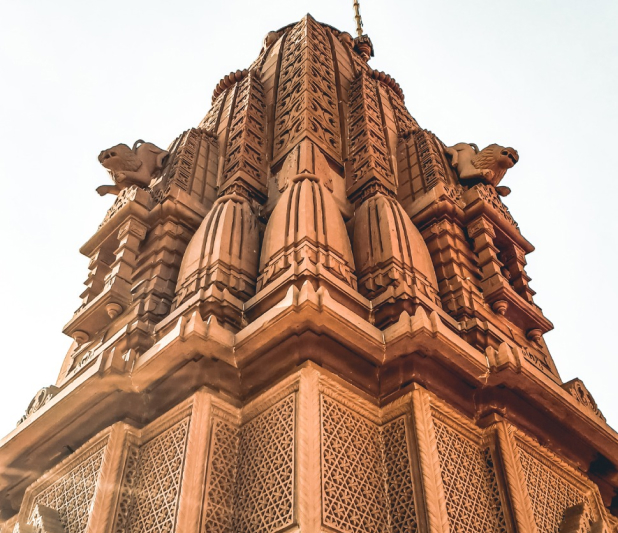
Welcome to the captivating world of Gujarat, where vibrant culture, rich history, and stunning landscapes await your exploration. Our Gujarat tour invites you to embark on an unforgettable journey through this western jewel of India.
Immerse yourself in the heritage of Ahmedabad's historic architecture, visit the sacred Jain temples of Palitana, and experience the thrill of Gir National Park, home to the majestic Asiatic lion. Witness the surreal beauty of Kutch's white desert and dive into the handicrafts of Bhuj.
Your spiritual journey takes you to Dwarka and Somnath, where ancient temples stand as testaments to India's spiritual legacy. The pristine beaches of Diu offer a serene contrast, and the journey concludes with memories of a land where history, culture, and nature blend seamlessly. Gujarat welcomes you with open arms.
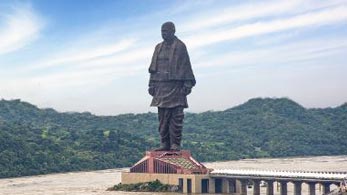
The Statue of Unity, located in Gujarat, India, is an awe-inspiring tribute to Sardar Vallabhbhai Patel, India's first Deputy Prime Minister and the "Iron Man of India." Standing at a staggering height of 182 meters, it's the world's tallest statue. This colossal bronze statue portrays Patel's enduring legacy in unifying India's diverse princely states into one nation. Surrounded by picturesque landscapes and a museum showcasing Patel's life, the Statue of Unity has become a prominent tourist destination, symbolizing national unity and the vision of a united, diverse, and dynamic India. It's a monumental testament to the country's rich history and aspirations for the future.

Gir National Park, nestled in the western Indian state of Gujarat, is a wildlife haven and the last refuge of the Asiatic lion. Covering approximately 1,450 square kilometers of pristine wilderness, it's a sanctuary for these magnificent big cats, now thriving due to successful conservation efforts. Besides lions, Gir is home to a diverse range of wildlife, including leopards, spotted deer, and crocodiles, in a varied landscape of forests, grasslands, and rivers. It's a prime destination for nature enthusiasts and wildlife photographers, offering a unique opportunity to witness the majestic Asiatic lion in its natural habitat.
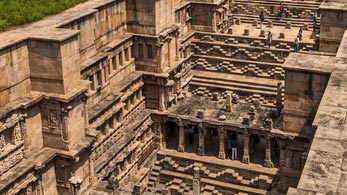
Rani Ki Vav, a UNESCO World Heritage Site, is an exquisite stepwell located in Patan, Gujarat, India. Built during the 11th century by Queen Udayamati in memory of her husband, King Bhimdev I of the Solanki dynasty, this architectural marvel is a subterranean water structure that not only served as a source of water but also showcases stunning ornate sculptures and intricate carvings that narrate Hindu mythological stories. The stepwell's seven levels descend to a depth of over 20 meters and exemplify the rich craftsmanship and engineering prowess of ancient India. It stands as a testament to India's heritage and artistic finesse.
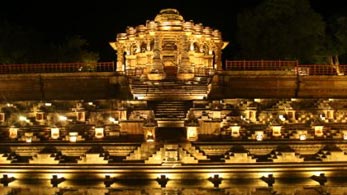
The Modhera Sun Temple, located in Gujarat, India, is a magnificent architectural marvel dedicated to the sun god, Surya. Built in the 11th century by King Bhimdev I of the Solanki dynasty, it boasts stunning design and intricate carvings that showcase the grandeur of ancient Indian art and architecture. The temple complex includes a beautifully carved stepped tank, known as the Surya Kund, and a hall with 52 intricately carved pillars. The temple's sanctum is designed to capture the first rays of the rising sun during the equinoxes, casting a spectacular display of light and shadow. This historical site is a testament to India's cultural and architectural heritage.
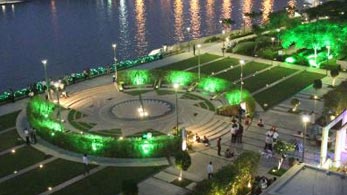
The Sabarmati Riverfront, in Gujarat's capital city, Ahmedabad, is a modern urban development project that has transformed the banks of the Sabarmati River into a vibrant and picturesque waterfront. Stretching for about 11 kilometers, it offers a beautiful blend of green spaces, gardens, promenades, and recreational areas. The riverfront's design not only enhances the city's aesthetics but also promotes sustainability and resilience against flooding. With its cultural events, serene views, and the iconic Dandi Bridge, it has become a hub for recreation and a testament to urban revitalization. The Sabarmati Riverfront is a symbol of modern urban planning in India, where nature and city life harmoniously coexist.
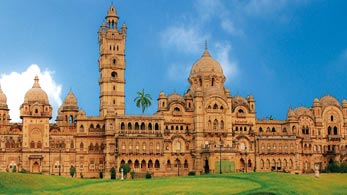
The Laxmi Vilas Palace, located in Vadodara, Gujarat, is an architectural masterpiece and one of the most opulent palaces in India. Built by Maharaja Sayajirao Gaekwad III in the late 19th century, it exudes a grandeur reminiscent of European palaces. The palace is a magnificent blend of various architectural styles, including Indo-Saracenic, Venetian, and Mughal, with ornate interiors adorned with artwork, chandeliers, and a remarkable collection of sculptures and paintings. Set in a vast estate with lush gardens and a golf course, the palace offers a glimpse into the opulent lifestyle of India's royal past. Today, it serves as a museum open to the public.
